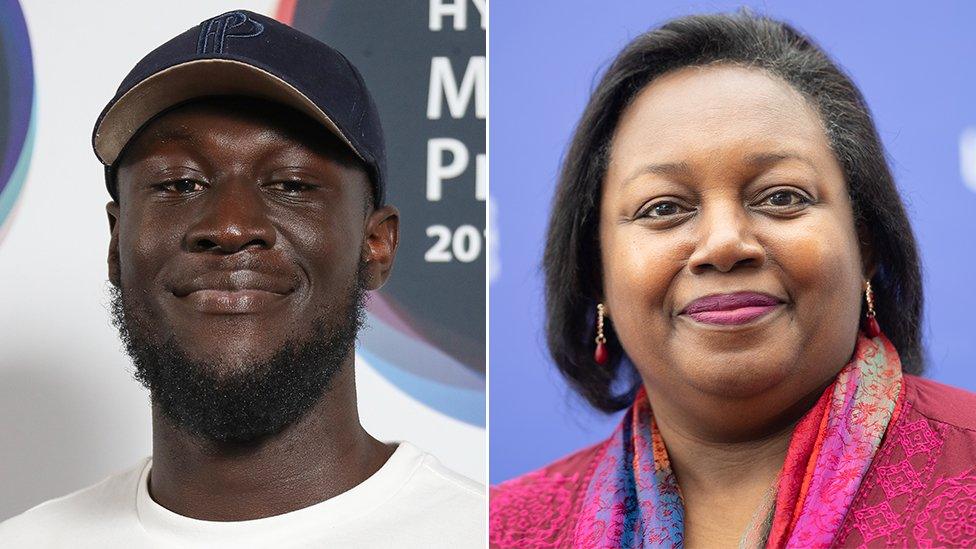Noughts & Crosses: Why the new TV series felt 'vital'
- Published
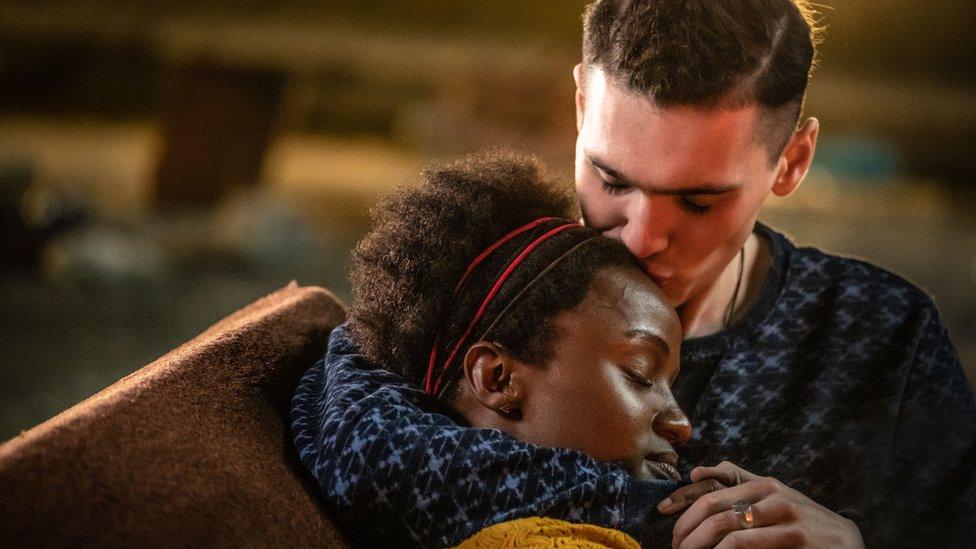
Masali Baduza and Jack Rowan play the teenage couple Sephy and Callum
There's a scene in the first episode of Noughts & Crosses where a young man is beaten up by a police officer because of the colour of his skin.
The boy and his friends aren't breaking the law as they are stopped and questioned, but that doesn't stop the situation escalating into a violent altercation.
It's an issue often debated in the news and depicted in films - but here, there is a twist.
The young man is white, and the police officer is black.
It's one of several backwards scenarios presented by the TV adaptation of Malorie Blackman's hugely successful 2001 novel, which imagines a world where white people are oppressed.
White characters' names are mispronounced, the word "blanca" is used as a racist insult, and white people work as catering staff serving people of colour at parties.
It might have taken 19 years for Noughts & Crosses to make it to television, but actor Patterson Joseph, who plays Kamal Hadley, thinks the themes will have particular resonance in 2020.
"I don't think it's zeitgeist, because I think this issue is always there, but I think we're particularly living in a time where the volume has been turned up on all that," he says.
"When you're shooting, you know it's significant because you know it's going to upset some people, maybe a lot of people, on both sides of the ethnic lines."
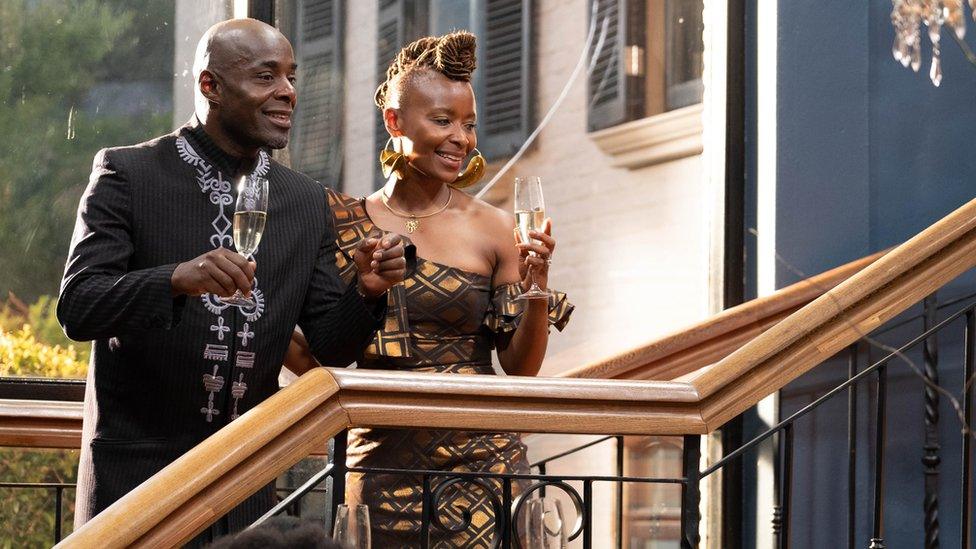
British actor Paterson Joseph, a fixture on our TV screens since 1989, teamed up with South African actress Bonnie Mbuli for the show
In this world, white people are known as the "Noughts" while black people are the "Crosses". The situation is a result of Africa's colonisation of Europe, and the Crosses are now the ruling class.
In the series, black people treat white people with disdain, and the interracial relationship at the centre of the plot is controversial among the two families involved - leading some fans of the book to describe it as a modern day Romeo and Juliet.
Joseph points out that this is just one interpretation of what things might be like if society had been this way around, adding that some viewers may object to certain suggestions.
"Black people might say, 'Oh my gosh, you're painting us as villains, we wouldn't be like that', but I beg to differ," he says. "I think all human beings who are isolated are going to make themselves dictators over time, and be pretty draconian in the apartheid sense.
"And white people might be going 'this is unfair', or be angry about being shown as oppressed in this way. So we knew that it had controversy laced all the way through it."
One detail in the show has proved particularly timely.
Last month, the UK's biggest retailer, Tesco, announced it would be stocking plasters in a variety of skin tones as it tries to give a better reflection of the UK's racial diversity.
"That felt massively coincidental," laughs Joseph, referring to the fact this very idea is presented in Noughts & Crosses, which had already been filmed at the point Tesco made the announcement.
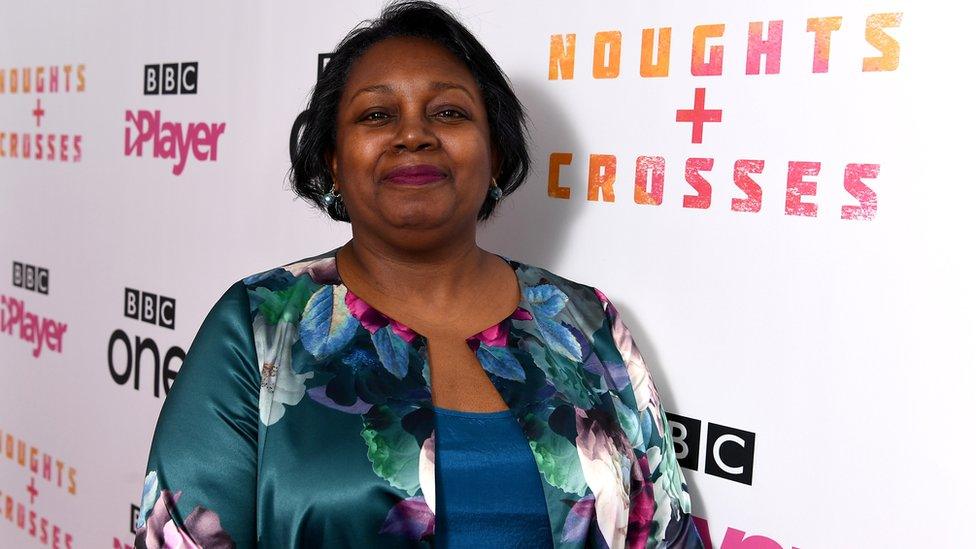
Noughts & Crosses author Malorie Blackman is currently writing an autobiography
While the theme of reversing the races remains central to the TV series, a few tweaks have been made to Blackman's novel for the small screen.
The two lead characters, Sephy and Callum, have been aged up, and are 19 instead of 14, giving them a better understanding of the politics of the world around them.
[It conveniently also helps the BBC avoid any potential controversy over presenting an underage romance on TV.]
Blackman has been involved in the creative process of the TV series and welcomed the changes, according to actor Josh Dylan, who plays Jude.
"We've hung out quite a lot, and I think she is the most wonderful person, and she's been so brilliant about this adaptation," he says.
"She could be so precious about her work and try and cling on to things, but she's bought into this spirit of the evolution of it.
"I think she's all up for it evolving into something that's relevant today, and the characters are aged up a bit, and I love that, what an artist to have the generosity of spirit and the awareness to want to keep learning and keep making it relevant."
One tricky element is dramatising the way in which the novel is told, where chapters switch between first-person accounts of various characters.
"I love her perspectives and how she captured it from Callum and Sephy's point of view, she'd sometimes jump to Minerva or Jude and have their own chapters and that's great," says director Koby Adom.
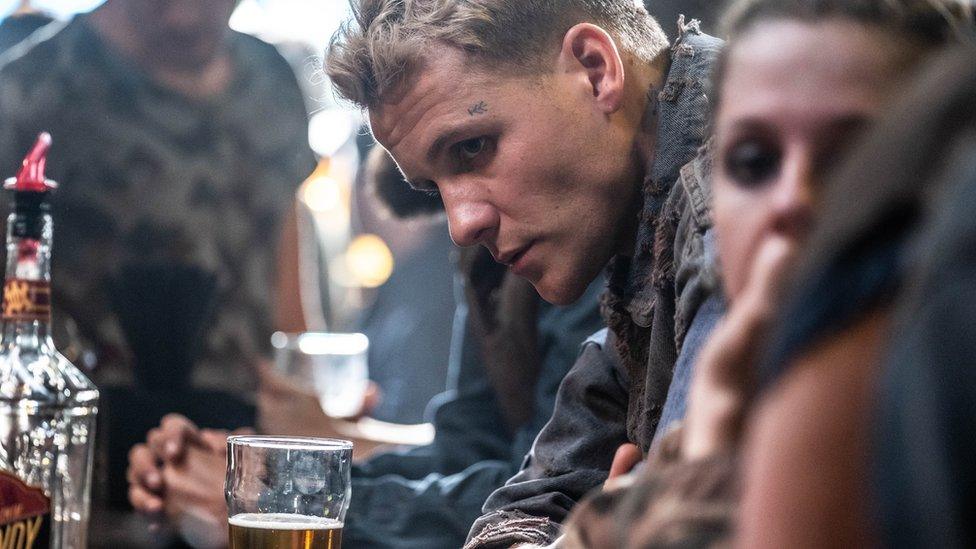
Josh Dylan plays Jude McGregor in the BBC One series
"But as filmmakers obviously we have to translate that on to TV, and it is all about perspectives when it comes to stories.
"As a team, we decided to tell the story from the inside out. And the central vehicle of this show is the love between Callum and Sephy. So we told the story from their perspective, individually and together."
Blackman hopes Noughts & Crosses is seen as part of a wider trend in black stories being made for the screen.
"Now, there's the realisation that diverse stories do make money," she said last month., external "Like the films Black Panther and Hidden Figures - it would once have been much harder to get them off the ground.
"There's an audience desperate for new content and new voices and I think a lot of people are waking up to that."
Adom says he hopes audiences take away the message of love at the centre of the story.
"It's talking about race, class, all these different departments of life that we face every day, and trying to put love about all of that, give that message that if everybody did love, there would be a lot more unity," he says.
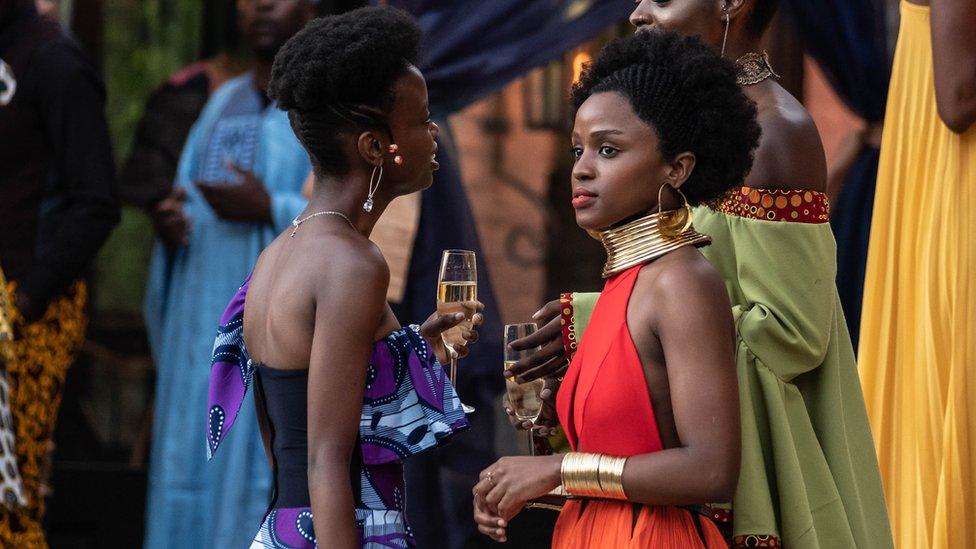
"I'm a big believer of divide and conquer, you can only conquer people if they're divided, you can never conquer anyone who's united. So I think this is a good sort of commentary on that, and how to try and combat division."
Dylan adds that playing Jude, a young character angry with the way society treats him, felt different to some of the other roles he's taken on as an actor.
"I care about everything I do, of course, but this felt very different, it felt very vital. I was really up for it, it's a huge world to establish and it's a tricky story," he says.
"As a young white middle-class actor, to play a role like this is really interesting, and to be on the front foot of something really important and not just the same stories you see on TV about the same kind of people, I sincerely care about this and hope it reaches people.
"I just want the TV show to make people think. And it's not prescriptive, it's not saying, 'This is what would happen if X, Y or Z happened. It's not a definitive answer to anything.
"The TV show is just offering a possible world, and with that, comes a whole load of questions."
In addition to being eye-opening, Joseph hopes it will provoke empathy with many viewers.
"Black people, we know how we live. It would be wonderful if white people who don't know what it might be like to be treated in that particular way could see through our eyes what it feels like."

Noughts & Crosses is broadcast on BBC One on Thursday 5 March at 21:00 GMT.
- Published21 March 2019
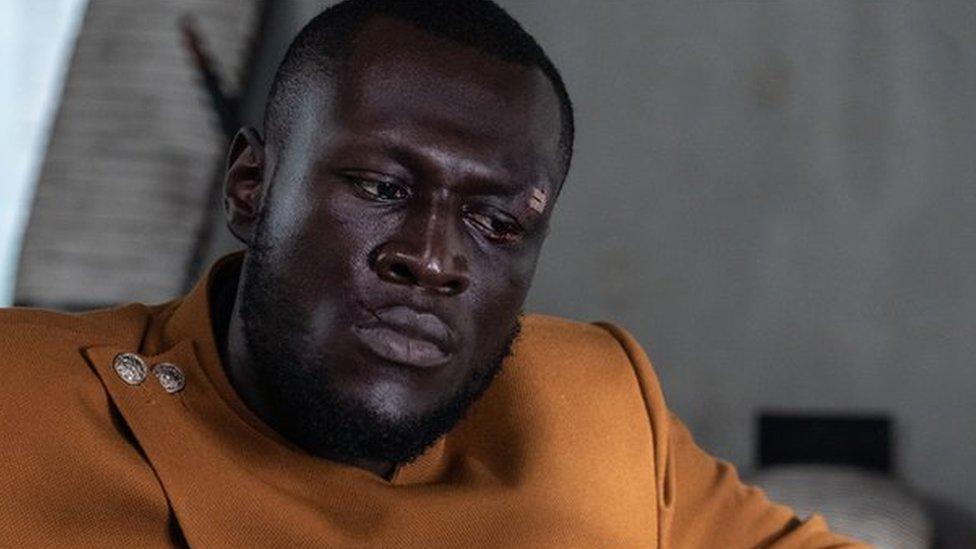
- Published16 October 2019
